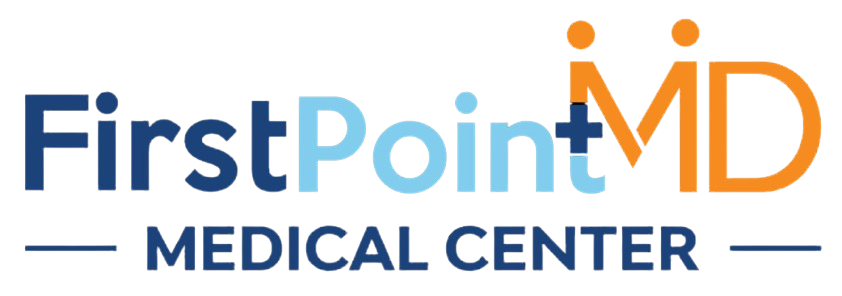In our role at First Point MD, we frequently observe a fundamental truth: when women are healthy, entire families thrive. Investing in women’s health is not just a matter of individual well‐being—it is a strategic investment in the future of families, communities, and society at large. In this detailed exploration, we outline why women’s health deserves priority, how it shapes family health outcomes, and what actionable steps can be taken today for a healthier tomorrow.
Why Women’s Health Needs Priority
Women’s health spans far beyond reproductive care—it encompasses physical, mental, social and preventive domains. The World Health Organization describes women’s health as an area of particular concern, noting that many women and girls are at a disadvantage because of sociocultural factors.
The Wider Scope of Women’s Health
Rather than viewing women’s health purely through the lens of maternity and gynecology, we recognise:
-
Chronic disease prevention (e.g., cardiovascular disease, diabetes)
-
Mental health care (addressing anxiety, depression, trauma)
-
Preventive screenings (cancer, bone health, immunisations)
-
Access to care and health literacy
Women as Family Health Gatekeepers
Research shows that women often serve as the primary decision‐makers for family health issues. According to one study, women make approximately 80% of healthcare decisions for their families. When women are empowered to maintain their own health, that empowerment extends to children, spouses, and older family members.
How Women’s Health Impacts the Family Unit
Maternal Health Sets the Stage for the Next Generation
Healthy women before, during and after pregnancy contribute to better outcomes for their children. For example, maternal nutritional status, prenatal care and healthy behavior all influence birthweight, early development and long‐term health patterns.
When we invest in women’s health in the pre‐conception and pregnancy phases, we reduce the risk of complications (such as gestational diabetes, pre‐eclampsia) and help ensure healthier infants and children.
Women’s Health Behaviors Ripple Outward
Because women often manage healthcare appointments, nutrition, home environment and preventative care, their personal health behaviours influence family behaviours. When a mother adopts healthy habits—regular exercise, healthy diet, preventive screenings—children and partners often follow. As one article put it, women are “champions of their family’s health”.
Economic and Social Stability
Women who are healthy are more likely to participate fully in the workforce, support family income, and be active contributors in their community. This enhances the family’s ability to access healthcare, education, nutrition, and stability. Investing in women’s health therefore brings broader socio‐economic benefits.
Prevention of Dependency and Multigenerational Illness
When women’s health is neglected, families may face increased burdens: repeated hospital visits, chronic illness, caregiving strain. Healthier women help avoid this burden, enabling families to channel resources into growth, education and wellness rather than crisis management.
The Evidence: Why It Works
Improved Child Health and Development
Studies show that when women have access to healthcare, education and control over health decisions, children’s health outcomes improve. For example, one commentary noted that returns on investment in women’s health and education may include sizable benefits for family health.
Reduced Family Health Disparities
When women receive timely preventive care—including screening, immunisations, chronic disease management—the risk of passing on preventable conditions decreases. Supporting women’s health contributes to narrowing health disparities in families and communities.
Economic Gains
Beyond individual and family benefits, investing in women’s health has economic returns. Women who remain healthy are more productive, face fewer days out of work, and bring stability to households. As one piece noted, women’s health is central to community well‐being.
Key Areas of Focus for Investing in Women’s Health
Preconception and Reproductive Health
Ensuring women are healthy before pregnancy leads to safer pregnancies, healthier babies, and better long‐term outcomes. This includes managing chronic conditions, optimizing nutrition, and addressing lifestyle factors.
Preventive Care and Screenings
Regular screenings (for breast cancer, cervical cancer, bone density, cardiovascular risk) and preventive care (vaccination, lifestyle counselling) can detect issues early and mitigate impact on families.
Chronic Disease Management
Women face unique risks for conditions like heart disease, osteoporosis, autoimmune disorders, and mental health issues. Early detection and management not only improve women’s quality of life but prevent secondary effects on family health.
Mental and Emotional Health
Women often mediate the emotional well‐being of families. Addressing women’s mental health—reducing stress, anxiety, depression—has direct positive effects on family dynamics, parenting, and family resilience.
Access and Health Equity
Investments must address barriers women face: limited access to services, cultural or social constraints, lack of education, discrimination. The WHO points out that women and girls often face disadvantages rooted in sociocultural factors. Ensuring equity in healthcare for women is fundamental to healthy families.
What First Point MD Offers for Women and Families
At First Point MD, our commitment to women’s health is comprehensive and family‐oriented. We provide:
-
Full spectrum women’s health services: from preventive screenings to chronic disease care.
-
Family‐centric primary care: we recognise that caring for women means caring for their families.
-
Education and empowerment: helping women understand their health choices, and how they impact their loved ones.
-
Coordinated care: integrating GYN, primary care, mental health and family health services so that women receive holistic support.
-
Accessible preventive programs: early detection, wellness programmes, and support for social determinants of health.
By focusing on women’s health, we help ensure that the benefits extend to spouses, children, and future generations.
Overcoming Barriers and Challenges
While the benefits are clear, there are real barriers to investing in women’s health:
-
Social and cultural constraints: In many contexts, women may not prioritise their own health due to caregiving responsibilities or lack of autonomy.
-
Health literacy gaps: Understanding of preventive care and health services may be limited.
-
Economic and access issues: Women may face difficulty accessing care due to cost, transportation, or scheduling.
-
Focus on other priorities: Women may place family needs ahead of their own health, delaying care.
At First Point MD, we work actively to remove these barriers: flexible scheduling, patient education, support services, inclusive care models and outreach.
Action Steps for Families and Women
Here are practical steps women and families can take to turn investment into impact:
-
Schedule a comprehensive women’s wellness exam – include screenings, lifestyle review, and planning.
-
Adopt a preventive mindset – Think ahead: nutrition, exercise, mental health.
-
Engage family members – Share health information with partners and children; involve them in wellness choices.
-
Build a support network – Encourage family members to participate in healthy behaviours alongside you.
-
Advocate for access – Explore opportunities for care, check for screenings, use community resources if necessary.
-
Communicate with your provider – Ask how your health impacts your family, request referrals, coordinate care.
-
Teach health behaviours to the next generation – Modeling healthy living fosters lifelong habits for children.
Conclusion
Investing in women’s health is far more than a matter of individual care—it is an investment in the health, resilience and prosperity of entire families. Healthy mother nurture healthy children, sustain healthy households, and build stronger communities. At First Point MD, we recognise this vital connection and are committed to supporting women at every stage of life—to the benefit of their families and beyond.
By prioritising women’s health today, we create a future where families are healthier, more empowered, and equipped for lifelong wellness.


